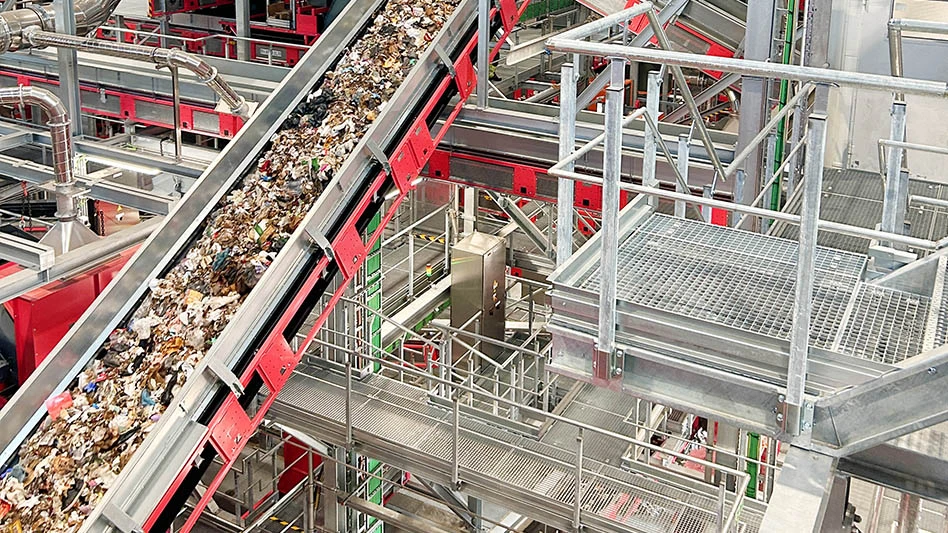
Photo courtesy of WM
Houston-based WM is working with JPMorgan Chase & Co., one of the world’s largest banks, to explore options to sell its landfill gas-to-energy or other renewable natural gas (RNG) operations, according to a mid-May report from Reuters.
The report, citing anonymous sources, says WM and JPMorgan are shopping the assets to a range of potential buyers that includes energy companies and private equity firms.
In a Friday note to customers, Baltimore-based analyst Michael Hoffman of Stifel Financial Corp., St. Louis, wrote in part that “the monetization of [WM’s] RNG portfolio should reduce volatility from the D3 renewable identification number (RIN) prices and future risk associated with United States Energy policy.”
D3 RINs are credits used for compliance within the U.S. Environmental Protection Agency’s Renewable Fuel Standard program. The value of the RINs can fluctuate and be affected both by the state of energy supply and demand and by the political climate in Washington or in state capitals.
That volatility likely is considered unwelcome by investment analysts who prefer the fee-for-service reliability of waste handling as a service.
Stifel estimates the current WM RNG portfolio as being able to produce about 4 million MMBtu (million British thermal units) of RNG annually.
According to Reuters, a potential sale also could include the rights to develop RNG operations at all 115 landfills WM owns.
“WM RNG plan calls for the development of [an] additional 24 million MMBtu [of] annual production by the end of fiscal year 2026, with total [landfill gas-to-energy] facilities growing from three to 24,” says Hoffman, a longtime waste sector analyst who next month will take on a new role as president and CEO of the Arlington, Virginia-based National Waste & Recycling Association (NWRA).
Should the divestment occur, Stifel identifies several potential options as to how WM would reinvest or otherwise deploy the resulting proceeds of the sale.
The company notes that WM is operating amidst a consent order with the U.S. Federal Trade Commission (FTC) that limits its merger and acquisition activity within the municipal solid waste (MSW) hauling sector.
Another M&A or investment option could involve plastic recycling, with Stifel identifying the polyethylene terephthalate (PET), high-density polyethylene (HDPE) and polypropylene (PP) markets specifically.
One of WM’s foremost competitors, Phoenix-based Republic Services Inc., has embarked on an investment program that targets higher recycling volumes for those three resins and other forms of plastic used in packaging.
Stifel also identifies industrial waste, medical waste and industrial wastewater as sectors that provide expansion opportunities for WM.
While JPMorgan has not commented on the potential divestment, the Reuters says WM issued a statement saying, “We are always looking for ways to maximize the value of our renewable energy business for our shareholders, which may range from organic growth initiatives to partnerships or monetization through a sale.”
Latest from Waste Today
- IEG hires general manager of service
- FZUK announces new commercial director
- Small-scale WTE partnerships
- Northwest Natural Renewables proposes Ohio landfill project
- US Senate backs reduced cuts to EPA
- Waste Connections announces Q2 results
- Returnity and Cosmoprof to address reusable bag waste
- SWANA releases report on aging WTE facilities





